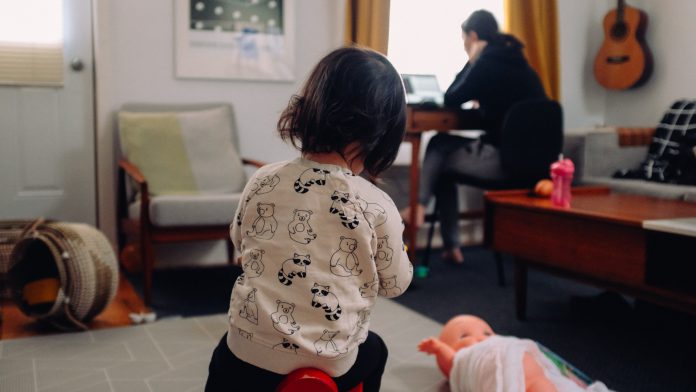If you feel like you’re the only one who’s still in quarantine, well, you’re not alone. As restrictions somewhat “ease” and we see more people venturing out or even going on staycations, I get to feel more conflicted about the “restrictions” that I feel I’m only imposing on myself. I’m sure I’m not the only mom who feels guilty about “denying” other family members to see and enjoy time with my kids. And are made to feel guilty about it too, whether purposefully or not by our family and friends.
But the thing is, it is still an ongoing pandemic. Vaccines are rolling out but the fact remains that the virus is still out there. And considering every individual’s personality, risk tolerance, and even anxiety levels, there are bound to be differences in how we cope with this “new normal.” Some people might already feel comfortable and well-adjusted with their masks and face shields in public, while others are more than fine in staying inside their homes.
During such a time when everything can feel unsafe and unknown, a loving and harmonious relationship with family and friends can play a huge role in keeping us sane. So if you’re one of those people who feels or was made to feel bad about your pandemic-related lifestyle, then here are a few tips on how to communicate and even get others to respect your and your family’s decisions.
Set your boundaries and communicate it
The first thing to do is to decide the kind of socializing you are comfortable with. What to do first? Do a risk assessment and set your level of risk tolerance. The next step is to ask yourself: If I left everyone’s opinion out of it, what would I be most comfortable with. Then, identify your own rules and write them down.
Some factors to consider can include your kids, you and your husband’s risk factors, and your day-to-day life (ie: do you need your family’s help to take care of your kids while you work, do you need help with household chores, etc.). You can also consider established COVID-19 facts when coming up with your rules, such as transmission rates and possibly high-risk situations. Having considered all these, you should be able to come up with doable rules such as only meeting up with other family members in outdoor settings without meals, or making do with regular video calls.
The next step is to communicate your family’s rules clearly to family and friends. Setting boundaries can be uncomfortable, but it gets easier with practice. You can rehearse how to go about explaining your stand clearly and non-defensively. And refrain from giving a lengthy explanation as well, since doing so might expose possible loopholes in our decision. The best way is to state your boundary and decision clearly and confidently.
Ask about their boundaries
Aside from communicating your boundaries, you can also ask the other person about theirs. Questions to ask can include: “What are your safety practices at home,” or “What healthy protocols are you practicing with your family?” Doing so shows that you respect their boundaries as well and will allow both of you to feel more connected at this time.
Get comfortable with NO
It is common for messages and decisions to be met with resistance, no matter how well communicated they are. And chances are, telling your family and friends about your “relatively new” pandemic boundaries that were non-existent pre-pandemic, we can expect that they will challenge it and push back. Some might make you feel guilty about it and others can even go as far as saying hurtful things (such as depriving them of your kids’ company). But do remember that you have a right to your own opinion and decide what’s best for you and your family. And you don’t even have to apologize for it. So it’s ok to stand your ground.
Acknowledge emotions
Theirs and yours. Validating their emotions can help defuse emotions. So acknowledge that the situation is not ideal for anyone and that you’re missing them too.
Be open to reevaluating your boundaries
As more information and even the vaccines come out, get comfortable in the fact that you can reevaluate and readjust your boundaries, depending on how comfortable you are given the situation.
Reinforce relationships
The good thing is that we now have new ways to socialize and bond, despite of geographic distance, social distancing, or medical boundaries. We can schedule video calls to catch up with one another or even have game or movie nights. You can even consider sending food platters or dropping off cakes or pastries to their home.
Ultimately, it is important to let family and friends know that you care for them and are thinking of them even if you cannot be with each other physically.
Join our MomCenter Community on our Facebook page and Facebook group for more insights on motherhood and parenting.





